
There’s a unique magic to cinema, a captivating allure that draws us into stories and introduces us to characters we’ll never forget. While leading stars often hog the headlines and anchor entire narratives, there’s an equally thrilling phenomenon that every true film enthusiast recognizes: the scene-stealer. These are the actors who, sometimes with just a few minutes of screen time or in a supporting capacity, deliver performances so potent, so utterly unforgettable, that they transcend their roles and etch themselves into the very fabric of movie history.
It’s more than just a memorable line or a flashy costume; it’s an entire embodiment of character that grabs your attention and refuses to let go. These actors possess an uncanny ability to inject a film with a burst of energy, emotion, or pure comedic genius, often leaving audiences talking about their characters long after the credits roll, sometimes even more than the main protagonists. They prove that there’s truly no such thing as a small part when you bring a larger-than-life presence to the screen.
So, prepare to revisit some truly iconic moments as we celebrate these cinematic sorcerers. We’re diving deep into the performances that captured our imaginations, redefined expectations, and unequivocally proved that sometimes, the biggest impact comes from the most unexpected places. Get ready to applaud the actors who absolutely owned every moment they were on screen, transforming minor parts into major highlights and stealing the show from under the noses of their more prominent co-stars.
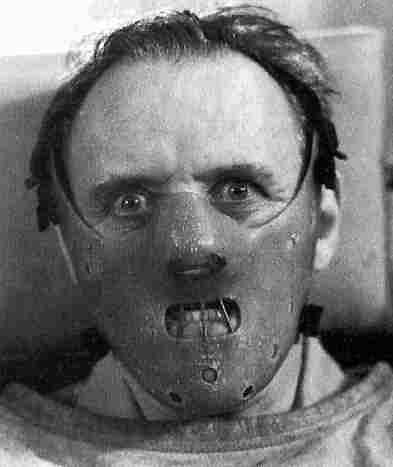
1. Anthony Hopkins in The Silence of the Lambs
When you think of iconic villains, Dr. Hannibal Lecter immediately springs to mind, a character so profoundly chilling and intelligent that he looms large in the annals of film history. What’s truly astonishing is that Anthony Hopkins’ Oscar-winning portrayal of the cannibalistic psychiatrist in the 1991 thriller *The Silence of the Lambs* was achieved with incredibly limited screen time. Despite the film sometimes feeling like it’s entirely about him, the character is hardly in the movie at all.
Across different accounts, Hopkins was on screen for a mere 16 minutes, or even up to 24 minutes, making his Best Actor Academy Award win for such a condensed performance an astounding feat. His creepy, sinister, and brilliant take on Lecter was more than enough to make him exceptionally memorable and show-stopping. The intensity he brought to every frame, every line, created a palpable sense of dread and fascination that continues to captivate viewers decades later.
It’s a testament to Hopkins’ sheer acting prowess that he could craft such a definitive and impactful character in such a short window. His performance set a benchmark for cinematic villains, proving that the quality and depth of an actor’s work can far outweigh the quantity of their screen presence. He delivered a masterclass in psychological menace, firmly establishing Lecter as a cultural touchstone and himself as an acting legend.
Read more about: You Won’t Believe How These 12 Supporting Characters Stole The ENTIRE Movie!
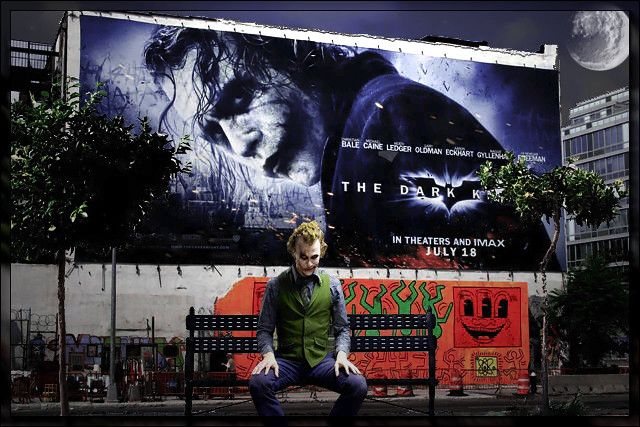
2. Heath Ledger in The Dark Knight
Stepping into the shoes of one of pop culture’s most iconic villains is no easy task, but Heath Ledger’s performance as the Joker in 2008’s *The Dark Knight* didn’t just meet expectations – it shattered them. In a movie starring Christian Bale as Batman, Ledger managed to completely steal the spotlight. His Joker wasn’t just a villain; he was “the anarchist,” driven by a singular desire “to see what would happen if everything was utter chaos.”
Ledger’s embodiment of the Clown Prince of Crime is widely considered one of the best, if not *the* best, versions ever put to screen. From his distinctive laugh to his unsettling posture and the unpredictable physicality he brought to the character, he delivered a performance that was both mesmerizing and terrifying. Every subtle gesture, every nuanced facial expression contributed to a portrait of pure, unadulterated madness that felt dangerously real.
His dedication to the role was absolute, and the impact of his work resonated deeply with audiences and critics alike. The laugh, posture, and overall embodiment of the iconic character earned Ledger a posthumous Academy Award for Best Supporting Actor, solidifying his legacy as an actor who could transform a role into a phenomenon, even with just 25 minutes of screen time.
Read more about: Chameleons of the Silver Screen: Unpacking the Unparalleled Versatility of 14 Iconic Actors Across Genres
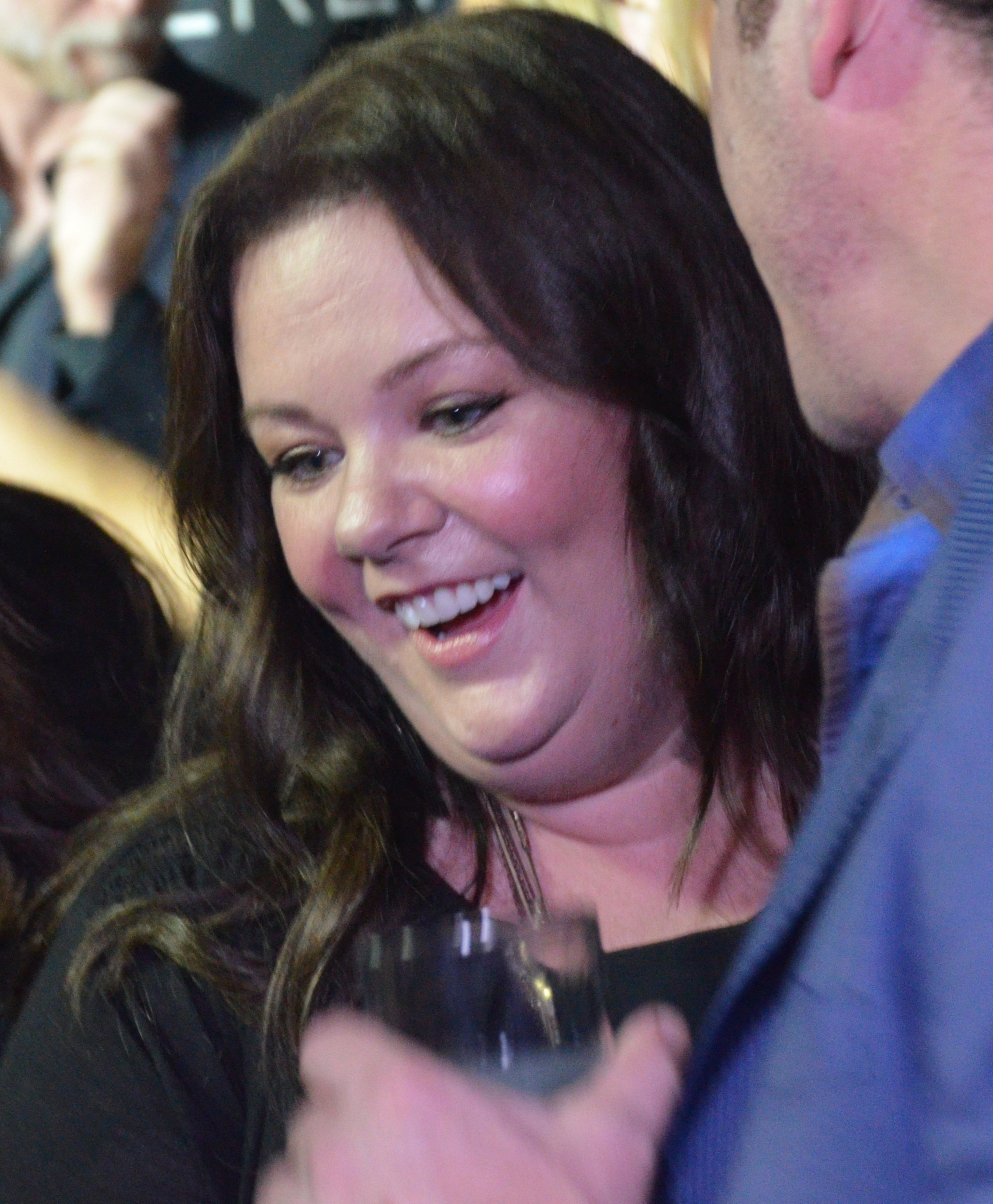
3. Melissa McCarthy in Bridesmaids
It’s a hot take, but one many fans would vehemently agree with: *Bridesmaids* wouldn’t be nearly as funny if the comedic expertise of Melissa McCarthy were not included. While Kristen Wiig and Maya Rudolph delivered strong performances as the lead and bride, it was McCarthy’s character, Megan, who truly provided the film with its biggest belly laughs and proved to be the undeniable scene-stealer. She brought a unique brand of raunchy, fearless humor that was both shocking and utterly hilarious.
Megan’s antics throughout the film are legendary, ranging from her “amazingly horrible outfits” to her unexpected, yet incredibly funny, moments like “stealing a van-full of puppies and seducing a stranger on a plane.” McCarthy pulls off these outlandish scenarios with an unshakeable confidence that makes them land perfectly. She embraces the character’s eccentricities and delivers every line with impeccable timing, making Megan a truly unique and memorable comedic force.
Her magnetic performance pulled viewers’ attention away from the leads, keeping it firmly on her and her crazy funny antics. While she had been a regular on *Gilmore Girls*, *Bridesmaids* catapulted McCarthy into Hollywood superstardom, opening the eyes of many to what a magnificent and hilarious actress she truly is. She created a character that has since become a fan favorite, consistently quoted and celebrated for its bold, side-splitting humor.
Read more about: Beyond the Lens: 12 Plus-Size Actresses Who Are Redefining Beauty, Owning the Spotlight, and Inspiring a Movement
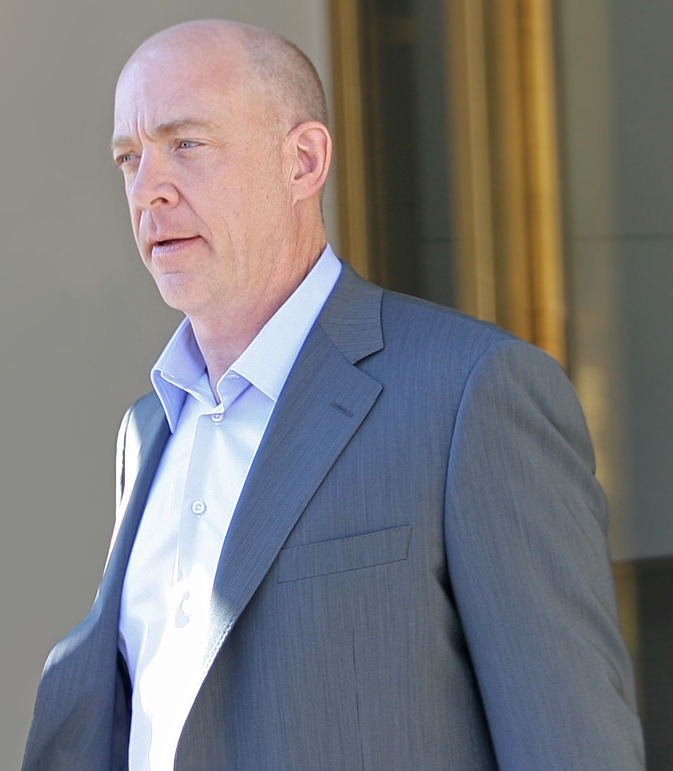
4. J.K. Simmons in Whiplash
In *Whiplash*, J.K. Simmons created a character so formidable, so intense, that it was nearly impossible to look away. As Terence Fletcher, an intimidating jazz teacher at an elite music conservatory, Simmons completely dominated the screen. He wasn’t just a tough mentor; he was mean, ruthless, and, at times, truly cruel, using fear and psychological warfare to push his students to their absolute limits.
Fletcher’s bigger-than-life personality, his crudeness, and his notorious “affinity for yelling first and yelling later” made him an electrifying presence. He challenged lead actor Miles Teller in every scene they shared, embodying a character that was both terrifying and strangely compelling. Audiences were on the edge of their seats, wondering what explosive reaction Fletcher would have next, creating an almost visceral tension that permeated the film.
Simmons’ show-stopping performance was not just wildly praised, but it also earned him an Academy Award for Best Supporting Actor, a testament to the sheer power and commitment he brought to the role. He didn’t just play a character; he *became* Fletcher, delivering a portrayal that was unsettling, unforgettable, and undoubtedly stole the movie from its lead.
Read more about: You Won’t Believe How These 12 Supporting Characters Stole The ENTIRE Movie!

5. Evan Peters in X-Men: Days of Future Past
When Evan Peters burst onto the scene as Quicksilver in *X-Men: Days of Future Past*, he redefined what a superhero introduction could be. Tasked with helping a young Magneto escape from a high-security prison beneath the Pentagon, Peters is hardly in the film for an extended period, clocking in at around five minutes and fifteen seconds of screen time. Yet, those few minutes were enough to leave an indelible mark on cinematic history.
His iconic slow-motion sequence, set to Jim Croce’s “Time in a Bottle,” is arguably one of the best scenes in the entire *X-Men* franchise, if not in superhero cinema as a whole. Watching Quicksilver effortlessly “rearranging bullets and maneuvering bad guys’ arms so they wind up punching themselves,” all while seemingly moving at a leisurely pace, was a masterclass in creative action filmmaking. The blend of humor, visual spectacle, and Peters’ charismatic performance made it an instant classic.
Evan Peters didn’t just play a character; he delivered a moment. That single scene, full of wit, style, and jaw-dropping visual effects, completely stole the movie. It showcased his ability to bring a unique blend of cool confidence and playful mischievousness to a character, leaving fans clamoring for more of Quicksilver, proving that sometimes, just one perfectly executed sequence is all it takes to become truly unforgettable.
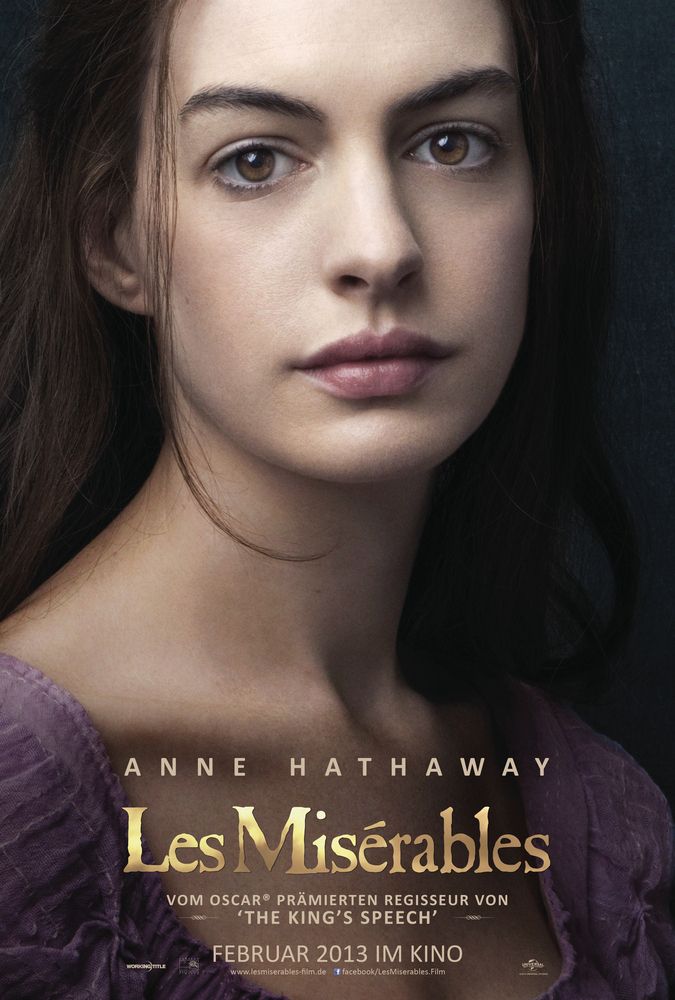
6. Anne Hathaway in Les Misérables
Anne Hathaway’s portrayal of Fantine in the 2012 adaptation of *Les Misérables* is a stunning example of an actor making a monumental impact with incredibly limited screen time. Despite appearing for a mere 15 minutes in the film, Hathaway delivered a performance so raw and emotionally devastating that it earned her an Academy Award for Best Supporting Actress. Her commitment to the role was absolute, going “all-in for the role, dropping 25 pounds and cutting off her long locks” to embody Fantine’s desperate plight.
Hathaway’s shining moment undoubtedly came during her emotional performance of “I Dreamed a Dream.” This was not just a song; it was a heart-wrenching monologue delivered through melody, capturing the utter despair and broken spirit of a woman pushed to the brink. Audiences had certain expectations for the vocally powerful anthem, but what they received was something far more profound and realistic.
Her rendition explored “the emotions and nuances that Fantine would actually feel in that moment,” showcasing a character who is “an emotionally broken woman who’s barely hanging on, trying to sing.” The brilliance was in its raw authenticity, as she performed live on set, allowing her to emote “in a totally raw way that you just don’t get with pre-recorded tracks.” This unvarnished approach made her performance incredibly powerful, cementing her place as a true scene-stealer.
Read more about: From Zero to Hero: 14 Actors Who Mastered the Art of the Comeback and Won Our Hearts!

7. Brad Pitt in Fight Club
While Edward Norton was the top-billed actor in David Fincher’s mind-bending *Fight Club*, it was Brad Pitt’s electrifying performance as the enigmatic soap maker, Tyler Durden, that truly stole the show. Pitt brought an undeniable charisma and dangerous magnetism to the character, making him instantly captivating and the subject of endless discussion among fans. He perfectly embodied a figure who was “Cocky, egotistical, and way more confident than The Narrator.”
Tyler Durden wasn’t just a character; he was a force of nature, a philosophy, and a rebellion rolled into one. Pitt played him with such compelling intensity and effortless cool that he became the gravitational center of every scene he was in. His dynamic with Norton’s Narrator was a study in contrasts, with Durden pushing boundaries and challenging societal norms, drawing viewers deeper into the film’s complex themes.
The critical reception reflected this sentiment, with Empire stating that “Norton is as fine as ever, but Pitt is the standout, lending Tyler a beguiling sense of glamour and danger.” His portrayal was so impactful that it made the infamous plot twist at the end even more unbelievable, cementing Durden as one of cinema’s most memorable and influential anti-heroes. Pitt proved that his ability to command the screen could elevate a film to legendary status.
Read more about: Ahead of Their Time: 14 Cinematic Gems That The Box Office Ignored But Are Now Legendary
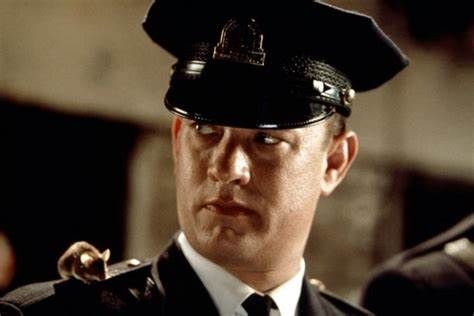
The Green Mile is a powerful and emotional film that delves into the lives of death row inmates and their guards. Tom Hanks and Michael Clarke Duncan deliver unforgettable performances, bringing to life the story’s themes of justice, compassion, and the supernatural. The film’s poignant moments and thought-provoking narrative make it a perfect choice for when you need a good cry.
8. Michael Clarke Duncan in The Green Mile
It’s truly a remarkable feat to stand out in a star-studded cast, yet Michael Clarke Duncan did exactly that as John Coffey in the 1999 fantasy crime drama, *The Green Mile*. Surrounded by heavyweights like Tom Hanks, James Cromwell, Sam Rockwell, and Gary Sinise, Duncan’s portrayal of the convicted rapist on death row was nothing short of captivating. His character slowly but surely reveals himself to be far more than initially perceived, embodying a gentle giant with a magical secret rather than a dangerous killer, compelling viewers to question their initial assumptions.
Duncan brought an incredible depth and tenderness to John Coffey, creating a character that resonated deeply with audiences. The film adaptation of the Stephen King novel sees the actor playing a man accused of heinous crimes, but who possesses an innocent heart and an extraordinary, inexplicable gift for healing. This contrast made his performance intensely poignant and memorable, leaving a lasting mark on everyone who witnessed it.
His portrayal was so touching and profoundly effective that it garnered him an Oscar nod for Best Performance by an Actor in a Supporting Role. This recognition is a testament to his ability to convey immense emotional complexity and a quiet, powerful presence, making Coffey one of the most beloved and tragic figures in Stephen King’s cinematic adaptations. It’s truly a powerful example of how an actor can command attention without relying on loud theatrics or extensive monologues, letting the character’s inherent goodness shine through.
Through his nuanced acting, Duncan made John Coffey unforgettable, proving that even in a film filled with compelling narratives and strong performances, an actor can elevate a supporting role to a central emotional pillar. He didn’t just play a part; he infused it with a soul that drew viewers into the character’s plight, leaving a lasting impression long after the credits rolled and etching Coffey into the annals of film history as a truly unique hero.
Read more about: Grab the Tissues: The 10 Movie Deaths That Will Still Make You Absolutely Bawl Your Eyes Out

9. Christian Bale in The Fighter
While Mark Wahlberg took center stage in the boxing ring for the 2010 drama *The Fighter*, it was Christian Bale who delivered a knockout performance that completely dominated the silver screen. Bale portrayed Dicky Eklund, a crack-addicted former boxing hero and the troubled brother who trains Wahlberg’s character, Micky Ward. His commitment to the role was legendary, a true masterclass in method acting that left audiences stunned by his transformation.
Bale transformed himself physically and emotionally for the part, undergoing a significant weight loss and completely altering his traits and accent to authentically embody Dicky. He effectively captured the heartbreaking and tragic nature of the character, a man wrestling with the ghosts of his past glory and the grip of addiction, making Dicky Eklund a figure viewers couldn’t tear their eyes away from. His portrayal was raw, gritty, and unflinchingly real, showcasing the devastating toll of substance abuse and faded celebrity.
The dynamic between Dicky and Micky formed the emotional core of the film, and Bale’s portrayal provided a powerful counterpoint to Wahlberg’s quieter performance. His explosive energy and moments of vulnerability ensured that every scene featuring Dicky was charged with an unpredictable intensity, keeping audiences on the edge of their seats and invested in his turbulent journey towards redemption. He created a character that was both deeply flawed and incredibly sympathetic.
His exceptional performance was not just widely praised but also justly rewarded with the Best Supporting Actor Academy Award. Bale didn’t merely play a role; he became Dicky, offering a compelling and unforgettable depiction of a man battling his inner demons, ultimately stealing every scene he was in and solidifying his reputation as an actor capable of extraordinary, career-defining transformations. It’s a performance that truly showcased the power of embodying a character from the inside out.
Read more about: From Little Legends to Powerhouse Performers: The Iconic Child Stars Who Became Hollywood’s Awesome Character Actors
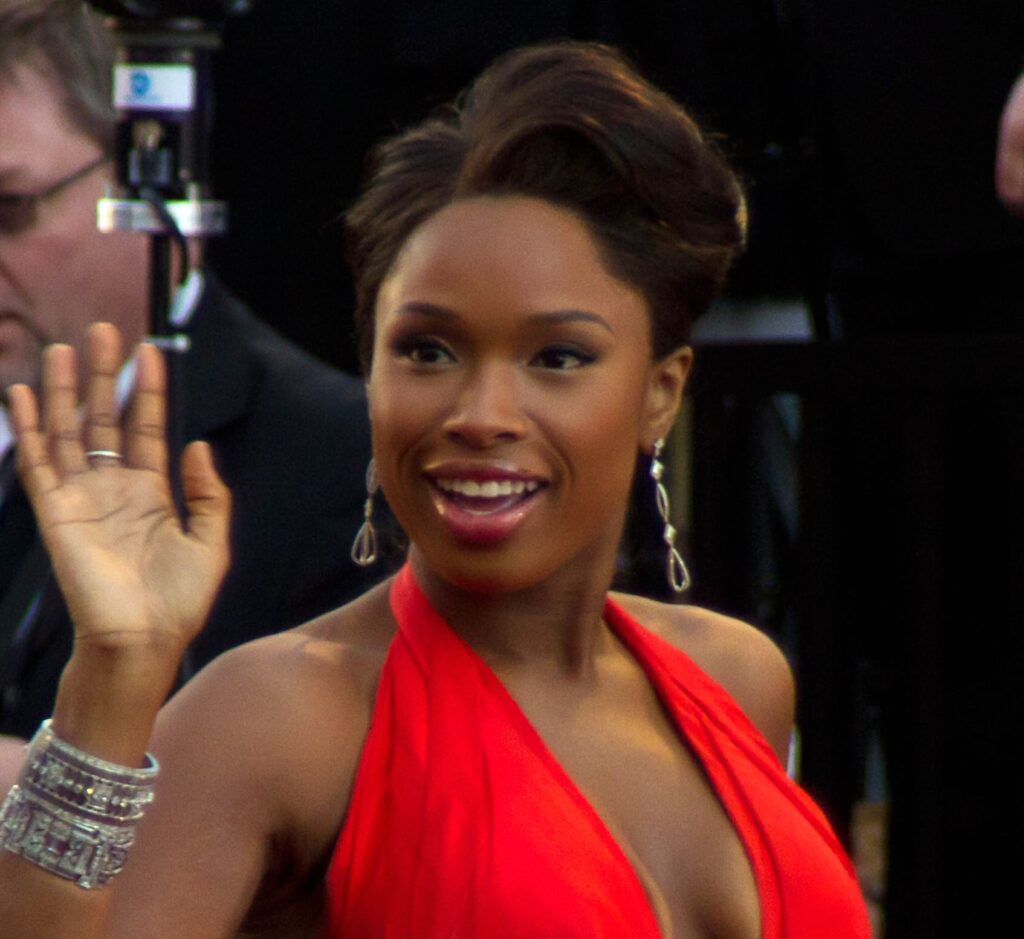
10. Jennifer Hudson in Dreamgirls
Before she captivated audiences on the big screen, Jennifer Hudson first made her mark as a contestant on the third season of *American Idol*. Her powerful vocal talent was undeniable, but it was her role as Effie White in the 2006 film adaptation of the Broadway musical *Dreamgirls* that truly cemented her status as a force to be reckoned with. Even alongside Eddie Murphy’s exceptional performance as James “Thunder” Early, Hudson was the undeniable show-stealer, proving her star quality from the very first note.
Hudson’s success in *Dreamgirls* was entirely deserved, as her portrayal of Effie White was nothing short of a revelation. She commanded attention not only through her unbelievable singing talent, delivering breathtaking, soulful renditions of the musical’s iconic songs like “And I Am Telling You I’m Not Going,” but also from her realistic temperamental attitude. Hudson played Effie with a compelling blend of respect and appreciation for the character’s complexities, embodying her passion, vulnerability, and resilience as she fought for her place in the spotlight.
Her ability to convey Effie’s soaring ambition and crushing heartbreak resonated deeply with viewers. She brought a raw, unvarnished emotional truth to every moment, making Effie’s journey both inspiring and tragic. The authenticity of her performance, particularly during the musical numbers, allowed her to connect with the audience on a visceral level, creating an emotional earthquake that dominated the film.
Her phenomenal performance earned her the Academy Award for Best Supporting Actress, a remarkable achievement for her debut film role. Hudson showcased an emotional range and vocal prowess that left audiences spellbound, making Effie White an unforgettable character whose journey, triumph, and heartache resonated deeply, solidifying Hudson’s place as a true Hollywood star and proving that some talents are simply too big to be contained.
Read more about: The Ultimate Roll Call: 14 Jennifers Who Are Absolutely Crushing It and Changing the World!
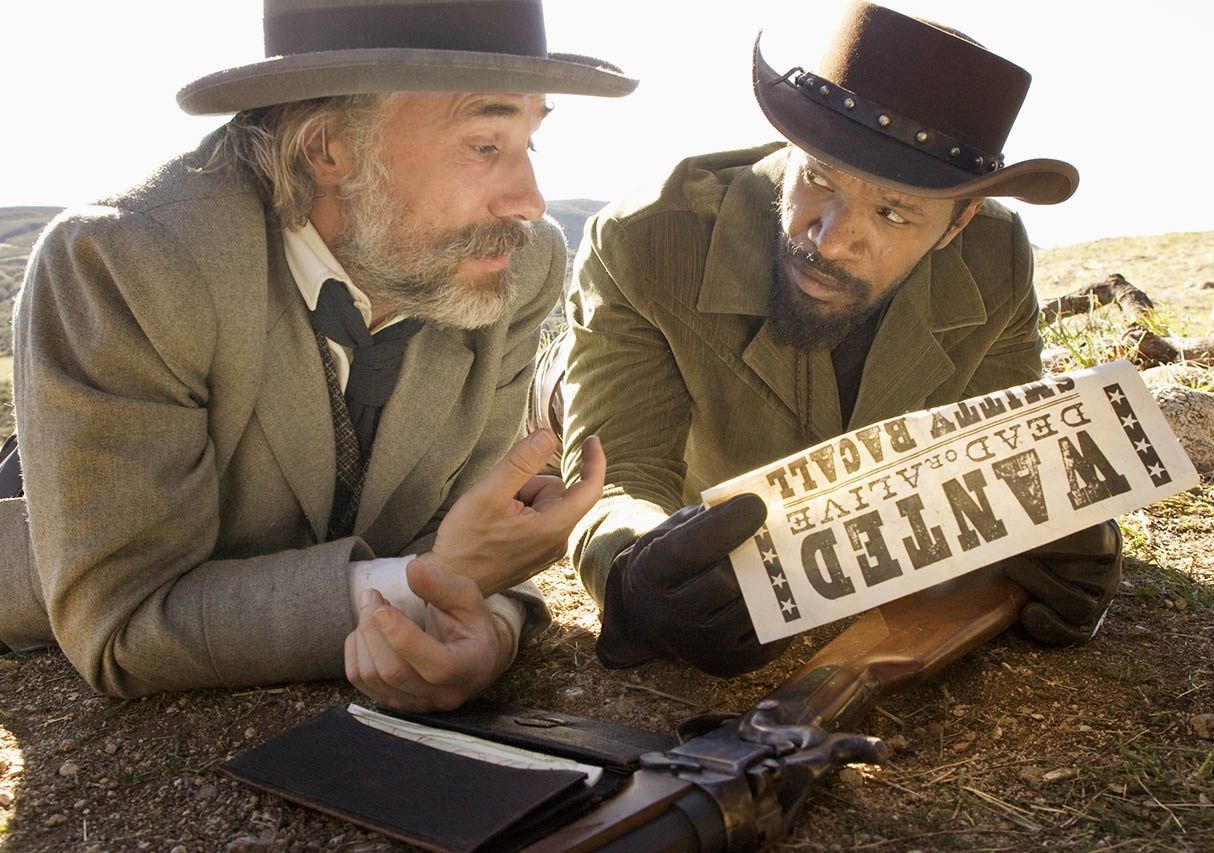
11. Christoph Waltz in Django Unchained
When it comes to unforgettable supporting performances, Christoph Waltz consistently delivers, and his collaboration with Quentin Tarantino has given us cinematic gold. While his iconic, Oscar-winning role as Hans Landa in *Inglourious Basterds* is legendary, it’s his turn as Dr. King Schultz in Tarantino’s 2012 Western, *Django Unchained*, that once again showcased his unparalleled ability to steal scenes. Supporting Jamie Foxx’s titular Django, Waltz embodied the sophisticated, witty, and morally complex bounty hunter with effortless grace and precision.
Waltz’s Dr. King Schultz oozed with certainty, delivering speeches that were both intelligent and an absolute delight to listen to. His command of language, coupled with a calm and measured demeanor, made every line a captivating experience, whether he was negotiating a deal or delivering a scathing indictment of slavery. He perfectly balanced the mild-mannered intellectual and former dentist with sudden, brief bursts of violence and anger, making these moments even more powerful and surprising through his hypnotic, controlled delivery.
The character of Schultz serves as Django’s mentor and unlikely partner, guiding him through the brutal landscape of the American South on a quest to free his enslaved wife. Waltz’s nuanced performance highlighted the character’s internal conflict and moral awakening, adding layers of depth to the action-packed narrative. He portrayed a man of principle in a world devoid of it, making his subtle reactions and philosophical musings as compelling as any shootout.
His distinctive portrayal was nothing short of brilliant, earning him another Academy Award for Best Supporting Actor, a rare and incredible back-to-back achievement for a supporting actor in Tarantino films. Waltz’s ability to create such a layered and charismatic character, who champions justice in a cruel world, cemented Schultz as an integral and unforgettable part of cinematic history, undeniably stealing the show with his unique charm, intensity, and unforgettable dialogue.
Read more about: Smile! You’re On Camera! We Found the 12 Actors Whose Grins Are IMPOSSIBLE Not to Recognize!

12. Robin Williams in Good Will Hunting
Robin Williams had already proven his incredible range as a dramatic actor long before the release of 1997’s *Good Will Hunting*, with powerful turns in films like *Dead Poets Society*. However, his role as Sean Maguire in this film truly solidified his legacy as one of the all-time greats, allowing him to showcase a profound depth that transcended his comedic genius. Appearing with a wonderfully bushy beard, Williams was in full dramatic mode, delivering a performance that was both heartwarming and profoundly impactful, resonating deeply with millions.
Williams’ performance was peppered with rousing speeches about love, loss, and introspective observations about life itself, all delivered with his typically calm and alluring voice that could hold an audience captivated. He brought a profound humanity to the character of Sean, a therapist who helps the prodigy Will Hunting (Matt Damon) navigate his emotional struggles and unlock his true potential. His scenes were filled with a raw honesty and empathetic wisdom that resonated deeply with viewers, offering moments of profound reflection and emotional release.
The powerful dynamic between Williams and Damon was the undeniable heart of *Good Will Hunting*. Their therapy sessions were not merely conversations but intense, revealing exchanges that felt incredibly authentic. Williams’ ability to listen, to challenge, and ultimately to nurture Will’s fractured spirit created an electrifying chemistry that made every interaction memorable, often culminating in profound breakthroughs that left audiences emotionally invested.
While the film’s exceptional writing, co-written by Damon and Ben Affleck, certainly provided a strong foundation, Williams truly knocked his performance out of the park. His ability to connect with the audience on such a deep emotional level, transforming powerful dialogue into unforgettable lessons on self-worth and vulnerability, earned him the Best Supporting Actor Oscar. It was a testament to his dramatic genius and his unparalleled ability to elevate every scene he graced, proving that he was far more than just a comedian.
Read more about: You Won’t Believe These 12 Movie & TV Scenes Where Actors Couldn’t Keep a Straight Face!

13. Leonardo DiCaprio in What’s Eating Gilbert Grape
Even as a teenager, Leonardo DiCaprio possessed an uncanny ability to command a scene, and his performance as Arnie, Gilbert Grape’s developmentally challenged brother, in the 1993 film *What’s Eating Gilbert Grape* is a prime example. He managed to steal the movie from established stars like Johnny Depp, who played the titular Gilbert, and Juliette Lewis, demonstrating a raw, untamed talent that hinted at the iconic career to come. This early, challenging role marked the beginning of his quest for that coveted Oscar, which he would eventually achieve years later.
DiCaprio’s portrayal of Arnie was difficult to watch at times due to his troubling mannerisms and jerks, which accurately depicted the character’s challenges, but it was precisely through that hardship that he made the movie so much more compelling and important. He committed fully to understanding the character, spending a few days with real mentally challenged individuals to ensure authenticity. This immersion was time well spent, as he beautifully and respectfully acquired all the touching nuances of Arnie Grape, ensuring his performance was both impactful and sensitive.
His youthful energy and vulnerability brought an incredible realism to Arnie, who often acts as the emotional center of the Grape family’s struggles. DiCaprio’s ability to convey Arnie’s joy, frustration, and unique perspective on the world, despite his limited dialogue, was simply extraordinary. He seamlessly integrated into the film’s small-town setting, making Arnie feel like a truly lived-in character rather than just a dramatic device, drawing empathy from every viewer.
His ability to inhabit such a challenging role with such conviction at a young age was extraordinary, earning him his first Academy Award nomination for Best Supporting Actor. DiCaprio didn’t just play a character; he brought a vibrant, complex humanity to Arnie, making him the emotional heart of the story. His early scene-stealing turn captivated audiences and critics alike, setting a high bar for future actors and confirming his prodigious, undeniable talent.
Read more about: From Little Legends to Powerhouse Performers: The Iconic Child Stars Who Became Hollywood’s Awesome Character Actors

14. Joe Pesci in GoodFellas
Despite his relatively small stature, Joe Pesci proved he could be just as tough, if not tougher, than anyone else through his mesmerizing, Oscar-winning performance as Tommy DeVito in Martin Scorsese’s 1990 masterpiece, *GoodFellas*. As the wildcard of the gangster group, Tommy was notoriously prone to significant bouts of brutal violence, with a temper that could be easily sparked, turning charming banter into terrifying aggression in an instant, often with devastating consequences.
Pesci occupied Tommy’s unfriendly and unpredictable character with an intense ferocity that made him utterly compelling and genuinely terrifying. Viewers legitimately feared for everyone when he was around, as his volatile nature meant no one was truly safe from his sudden outbursts. This chilling unpredictability kept audiences on edge, making Tommy DeVito an unforgettable, albeit frightening, presence on screen, from his “funny how?” monologue to his casual brutality.
His portrayal was so powerful and convincing that it transformed Tommy into one of cinema’s most iconic and feared gangster figures. Pesci embodied a character that epitomized the dark side of loyalty and ambition within the mob. He made you laugh one moment and gasp in horror the next, showcasing a unique blend of dark humor and sheer menace that few actors could pull off with such chilling authenticity.
Even if Pesci is “the nicest guy in the world” in real life, as the context suggests, his ability to convey such brutality and explosive rage in this movie leaves an indelible mark, ensuring that his scene-stealing performance continues to be celebrated and discussed by film enthusiasts. His Oscar win for Best Supporting Actor was a well-deserved recognition of a performance that defined an era of gangster cinema and cemented his legendary status.
Read more about: Goodfellas’ Unvarnished Lens: The Realities of Mob Life That Challenge Our Grandest Narratives
As we wrap up our deep dive into the magnificent world of scene-stealers, it becomes abundantly clear that star power isn’t always measured by screen time. It’s about that electrifying spark, that unforgettable moment, that sheer force of talent that grabs you and refuses to let go. These actors, whether through comedic brilliance, dramatic depth, or sheer magnetic presence, remind us that every role, no matter how small, offers an opportunity for greatness. They are the unsung heroes and the unexpected stars who elevate movies from good to legendary, proving that true impact often comes in the most surprising, and utterly captivating, packages. So next time you’re settling in for a film, keep an eager eye out for those incredible performers who might just steal your heart – and the entire show – leaving you talking about them long after the credits roll!



